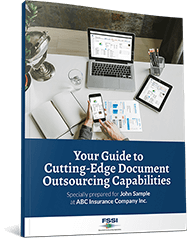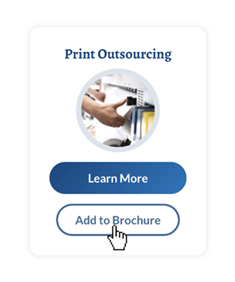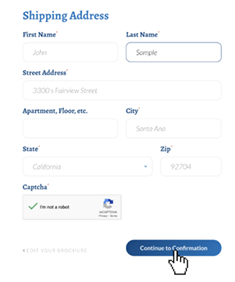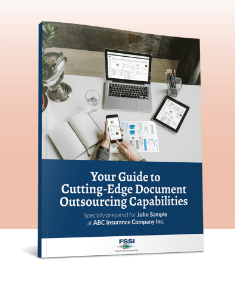Marketing Strategies, Technology and Mobile, Variable Data Personalization
Personalized Marketing: The Road Less Traveled

The Benefits of Personalized Marketing for the Financial Services Industry
Personalized marketing is a form of target marketing that creates messages for individual customers. In many cases, personalization is run through an automated method that uses computer software to mine data and makes client-centric recommendations. Marketers then use that data to create relevant messaging. A personalized marketing platform can be used on products by employing preference systems that help consumers select individual specifications on the products they want.
By offering customers the products they want, businesses are more likely to convert targeted website traffic and direct mail campaigns into sales. The transactional nature of the financial services industry can get a little dull and boring. By integrating personalized marketing into your financial statements, bills, invoices, and compliance documents you can increase the value of each document you send your customers.
Personalized Marketing is not just for eCommerce
Many businesses are now implementing deeper levels of marketing personalization. Companies are including personalization in their marketing campaigns. Many internet-based companies are leading the way. Internet software helps companies locate physical addresses of where the consumers are signing in, to keep the records of their transactions for marketing purposes.
Some companies are ahead of the competition when it comes to product personalization. For instance, shoe sellers such as Nike and Adidas request their customers to customize their shoes by choosing the color and design elements that match individual preferences. Dell invites consumers to customize by choosing the specifications they need for their machine. That information is then saved and used for marketing purposes such as cross-sell and up-sell.
Many grocery stores use loyalty cards for providing a personalized shopping experience. Companies can track individual buying history and send coupons and sales announcements to customers. Personalized marketing history has become a critical element of local stores and small businesses. Now, sellers know their clients by name.
What Type of Customer is Personalized Marketing Most Effective On?
- Targeted Marketing sends one message to one customer (1:1)
- Mass marketing is where only one message is sent to many customers.
- 1 to 1 Marketing and Personalized communication.
1-to-1 Marketing is more effective because it speaks specifically to and resonates with a prospect. However, the level of customization implemented depends greatly upon the prospect’s or a customer’s available information.
Personalized advertising is most effective for customers who are comfortable with sharing information. Fortunately for businesses, the average consumer is willing to give away a little privacy to achieve a personalized experience. By comparing the total population, younger customers who have experienced technology since the beginning of time are generally more comfortable giving out information than older generations.
How to Create a Personalized Communication Campaign
Personalization in marketing has an impact on various marketing approaches. The following examples demonstrate how personalized marketing communications and variable data printing can be used in each situation:
Business-to-Business (B2B)
Businesses can collect lead intelligence on prospects and the precise challenges they are going through. Marketers then use this information to frame their pitches, instead of contacting decision-makers and agents in business targets.
Digital Marketing
Businesses can design web pages that display content based on a consumer’s history. For example, when a prospect visits the company’s website, the purchase history, geographic location and referral source can influence what content we present to the visitor. SEM and SEO are now crucial to the success of many businesses.
Social Media Marketing
Businesses respond to clients through social media by engaging with them and answering their questions. Personal interaction proves to be more effective, unlike automated responses. Single clients may require more effort. However, social media marketing increases the chances that customers will share their positive experiences with family and friends. As a result, this connects businesses with more contacts.
Email and Direct Mail
Direct mail advertising combined with personalized marketing strategies allow you to change your lead information. In addition, personalized direct mail also allows you to include or highlight specific offers or products. We refer to this type of technology as variable data printing or variable information printing.
For businesses, personalized communication is the core skill in any direct mail marketing campaign. The goal of a marketer is to create personalized, engaging messages. These messages should communicate a deep understanding of the prospect or customer simply, persuasively and clearly.
Learn more about how FSSI supports your company’s targeted marketing campaigns.




